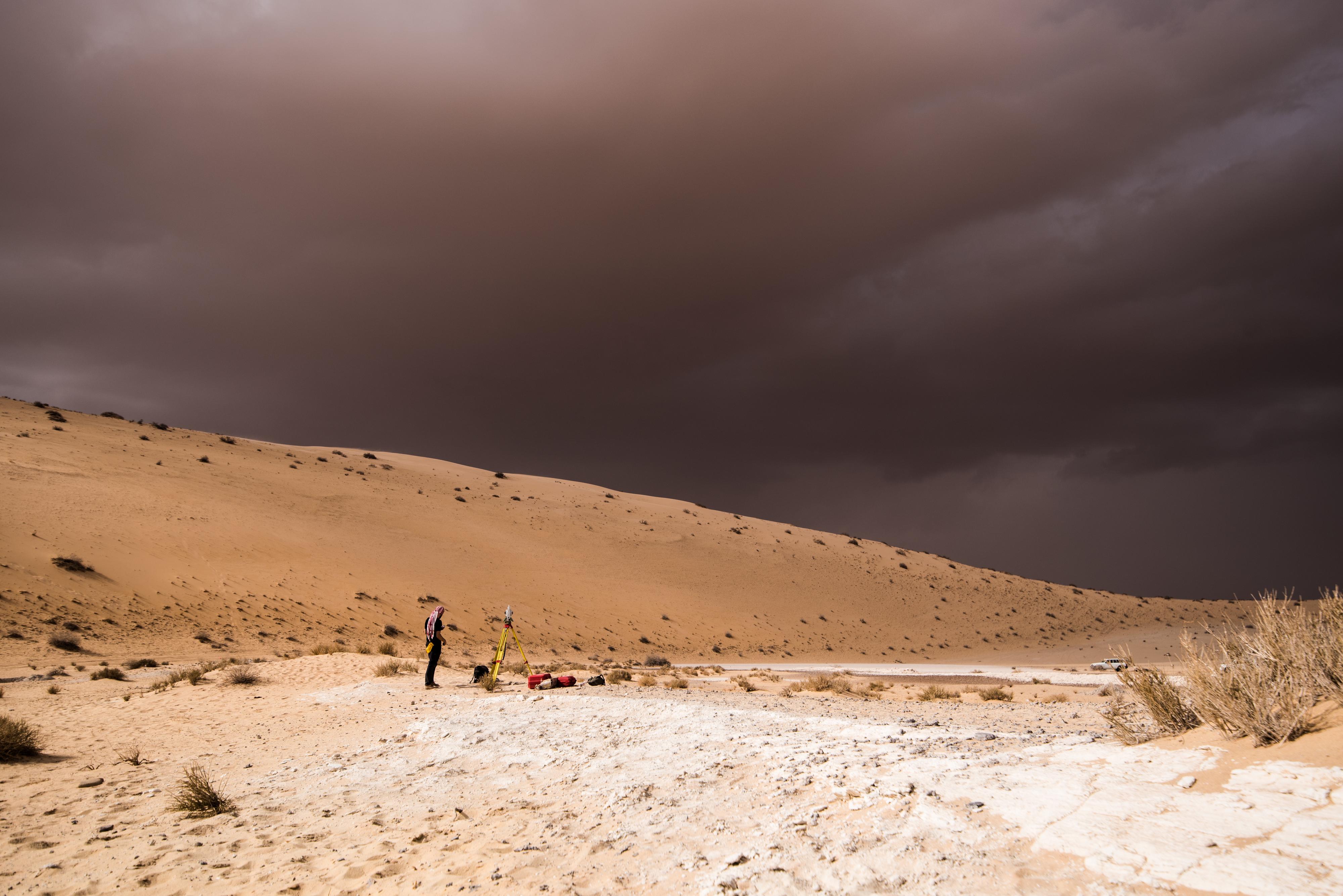Climate change drove early humans to Arabia several times over last 400,000 years, study finds
Humans made it out of Africa at least 20,000 years before genetic traces suggest

Your support helps us to tell the story
From reproductive rights to climate change to Big Tech, The Independent is on the ground when the story is developing. Whether it's investigating the financials of Elon Musk's pro-Trump PAC or producing our latest documentary, 'The A Word', which shines a light on the American women fighting for reproductive rights, we know how important it is to parse out the facts from the messaging.
At such a critical moment in US history, we need reporters on the ground. Your donation allows us to keep sending journalists to speak to both sides of the story.
The Independent is trusted by Americans across the entire political spectrum. And unlike many other quality news outlets, we choose not to lock Americans out of our reporting and analysis with paywalls. We believe quality journalism should be available to everyone, paid for by those who can afford it.
Your support makes all the difference.Early humans ventured into Arabia in at least five migratory phases, driven by changing climate over the past 400,000 years, according to a new study.
The vast arid landscape of the Arabian Peninsula is the only land bridge connecting Africa and Eurasia and has been a focus for research into the evolution of early humans, including our species Homo sapiens, as they migrated out of and back into the African continent.
Cultural, biological and environmental records from the Arabian peninsula, however, are limited, restricting what is known about the demography and behaviour of our ancient human ancestors in the region.
There were no dated archaeological sites older than 10,000 years recorded in the three million square kilometres of the Arabian Peninsula until about 10 years ago, Robin Dennell from the University of Exeter wrote in an article for the journal Nature on Wednesday.
In the current research, scientists, including those from the Max Planck Institute for the Science of Human History in Germany, analysed a collection of stone tools and animal fossils discovered in the Arabian desert.
The findings, also published in Nature, provide evidence of the movement of early humans into the peninsula in at least five phases, each of which was associated with a brief interval of reduced aridity, shedding light on past human migrations due to climate fluctuations.
While modern-day Arabia is one of the world’s driest places and is long thought to have played little role in human prehistory, scientists said parts of the region received monsoon rain in the last 400,000 years during different historical periods.
They said these spells of rain resulted in “rolling grasslands, flowing rivers and large lakes home to thousands of wild donkeys, antelopes and hippos.”
“Humans also inhabited these green corridors as they made their way out of Africa, only to disappear when conditions deteriorated again,” the archaeologists wrote in The Conversation.
In the study, the scientists reported the discovery of a collection of stone tools and animal fossils associated with deposits of what were once ancient lakes located at the Nefud desert in what is now northern Saudi Arabia.
In their excavations, the scientists found artefacts associated with the oldest known, early human occupation in Arabia, suggesting there were at least five phases of dispersal in this region during the Pleistocene epoch, around 2.6 million to 11,700 years ago.
Each of these migrations coincided with more favourable environmental conditions, namely brief intervals of reduced aridity at approximately 400,000, 300,000, 200,000, 130,000-75,000 and 55,000 years ago, according to the researchers.
One of the most significant finds in the region, scientists said, was that of a Homo sapiens finger bone among other fossils, from an ancient Saudi Arabian lake bed known as Al Wusta.
These remains, from 85,000 years ago, provide proof that modern humans had made it out of Africa at least 20,000 years before genetic traces suggested they left.
“It has been thought (and many still believe) Homo sapiens only left Africa about 50,000-65,000 years ago. Our finger bone finding challenges this view,” the archaeologists wrote in The Conversation.
Each of these migratory phases could also be categorised based on the differences in archaeological evidence of material tools and culture, they said.
There were, thus, movements of different species of early humans, including Homo erectus, Neanderthals and Homo sapiens.
“These findings suggest colonisation of Arabia by diverse hominin populations, potentially even composed of different species,” the scientists pointed out in their study.
The research highlights the link between early human migrations and patterns of climate change, in which different lineages of ancient humans made it out of Africa during different historical periods when conditions became favourable.
The archaeologists conclude the discoveries not only underscored the importance of this region for understanding ancient human migrations at the nexus of Africa and Eurasia, but also revealed how interactions between early human populations can be linked to periods of extensive environmental and ecological change.
Join our commenting forum
Join thought-provoking conversations, follow other Independent readers and see their replies
Comments